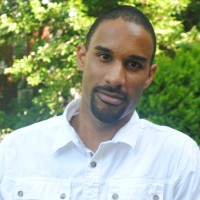Reflections on The Other Wes Moore
I recently finished reading The Other Wes Moore: One Name, Two Fates which is Messiah College’s common text for incoming Freshman. As you can guess, the book is a true story about two people each named Wes Moore. In this case, they both grew up in the same Baltimore neighborhood. The book proceeds to follow both Wes Moore’s from childhood towards manhood. Each are caught up in a maze of obstacles and challenges throughout their early lives. Each make decisions that had lasting consequences on their lives. At one point in the book we are reminded that sometimes it is hard to tell the difference between a second chance and a last chance. Such rings true in this book as your journey along and see one Wes Moore become a world travelled Rhode Scholar while the other Wes Moore’s fate ultimately is a life sentence in prison with no chance of parole.
This book is not preachy at all while telling its story (until the end). It manages to shine a light on some of the systemic challenges that inner cities of most large cities in the United States face while also struggling with questions around choices and personal responsibility. On this front, I did think that the books social analysis was a bit light. Also it had a subtle yet consistent theme of taking control of one’s own destiny. Personal and social responsibility are themes that are present in this work. If I were to give this book to anyone, it would be for young black boys and navigating the obstacles and injustices of our inner cities while also needing to expand their worlds and their visions of what is possible if they can escape the traps and obstacles in the way. The truth is that many young people growing up in under-resourced and historically oppressed neighborhoods carry the weight of responsibility and consequences way beyond the average American adolescent. Such a book might help them realize how fragile their life is, and yet give them some sense that they can struggle towards something better.
To be honest, I would not have assigned this as the common text at Messiah College (but obviously it was not my decision). I think the book is a fine choice overall, but because the book ends on a stronger note in relation to personal responsibility, it seems like it is possible that it will have our mostly white conservative evangelical students walking away with the same framework that they began with. It will require meaningful critical reflection and discussion of the book's entire themes in the classroom to navigate students towards a more complicated understanding of race, poverty, and inner-city neighborhoods. I do not assume that all students will process all of that on their own. Overall, though, it was a moving book that certainly had me reflecting on the fragility of my own journey, and the many ways it could have continued down a very different path than where I find myself today. Hopefully such a book would open us up to our shared humanity and make us less likely to use one dimensional categories like “thugs,” and “those people” to define other people. We would all be more compassionate if we identified more deeply with those whose journeys have taken hard and painful turns. May that be the case for my students as we discuss the book next week.






